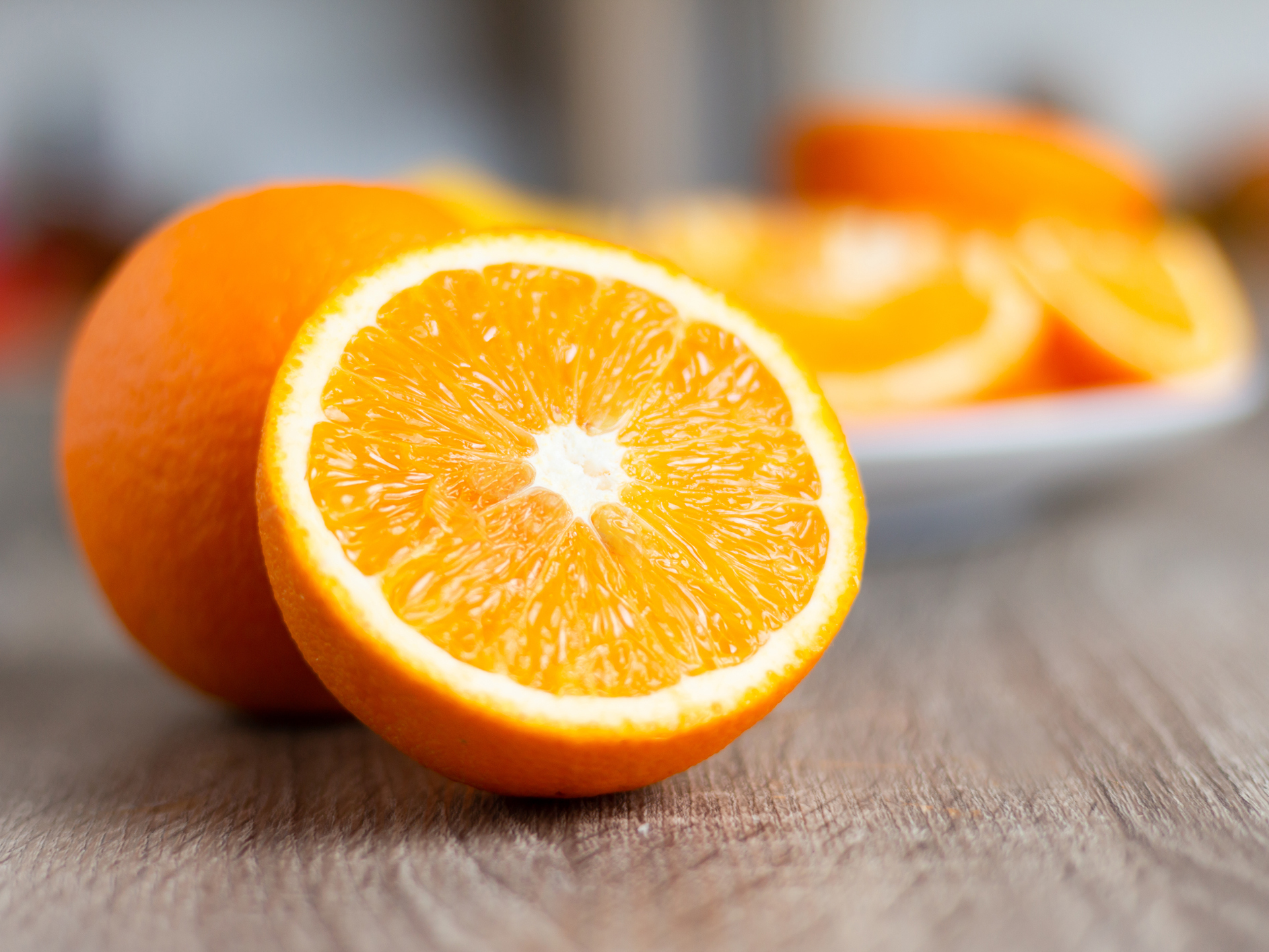- You should eat foods high in vitamin C, zinc, magnesium, and calcium when you have a cold.
- If you’ve lost your appetite, supplements can be a good alternative source of the vitamins and minerals your body needs to fight the cold virus.
- You should also drink plenty of water, broths, and caffeine-free teas to stay hydrated.
- This article was reviewed by Tania Elliott, MD, who specializes in infectious diseases related to allergies and immunology for internal medicine at NYU Langone Health.
- Visit Insider’s homepage for more stories.
Chicken noodle soup is a classic remedy for the common cold. However, it’s not your only option. Other foods, supplements, and fluids can help you find relief and get back on your feet. Here’s what you should eat and drink to get over your cold.
Eat foods high in vitamin C, zinc, magnesium, and calcium
“At the first signs of a cold, you want to focus your diet around nutrients that will boost your immune system,” says Fred Pescatore, MD, a physician who specializes in natural medicine. “Vitamins and minerals like vitamin C, zinc, magnesium, and calcium are key.”
Vitamin C and zinc have been go-to cold treatments for decades. Both of these nutrients won’t prevent you from getting sick, but they may alleviate your symptoms.
The recommended amount of Vitamin C per day for the average adult is 75 milligrams (mg) for women and 90 mg for men. Foods with lots of vitamin C include:
- Red bell peppers: One medium-sized bell pepper contains about 190% of your daily vitamin C needs.
- Oranges: One medium orange contains about 130% of your daily vitamin C needs.
- Strawberries: 8 medium strawberries pack about 160% of your daily vitamin C needs.
- Broccoli: One medium stalk covers about 220% of your daily vitamin C needs.
- Kiwi fruit: Two medium fruits contain about 240% of your daily vitamin C needs.
Likewise, the recommended amount of zinc per day for the average adult is 8 mg for women and 11 mg for men. Foods high in zinc include:
- Cooked oysters: Three ounces contain about 493% of your daily zinc needs.
- Broiled beef patty: Three ounces contains about 35% of your daily zinc needs.
- Baked beans: Half a cup contains about 19% of your daily zinc needs.
- Dry roasted cashews: One ounce contains 11% of your daily zinc needs.
Though more research is needed, some studies suggest that a lack of magnesium can lead to a weakened immune system. Therefore, enough magnesium in your diet may help you fight infection.
The recommended amount of magnesium per day for the average adult is between 310 mg for women and 420 mg for men. Magnesium-rich foods include:
- Dry roasted almonds: One ounce contains about 20% of your daily magnesium needs.
- Boiled spinach: Half a cup contains about 20% of your daily magnesium needs.
- Cooked black beans: Half a cup contains about 15% of your daily magnesium needs.
- Smooth peanut butter: Two tablespoons contain about 13% of your daily magnesium needs.
- Cubed avocado: One cup contains about 12% of your daily magnesium needs.
Supplements can also help
When you're sick, you may lose your appetite, which makes it harder to get the nutrition you need to recover. In that case, supplements can be a potent source of vitamins and minerals, Pescatore says.
"A normal healthy diet should include enough of these vitamins and minerals, but if needed, you can also supplement these vitamins to ensure you are getting the correct levels," explains Pescatore. "One of the tried-and-true nutrients to ensure a speedy recovery from the common cold is vitamin C."
Plus, small studies have suggested that common cold supplements of elderberry, ginseng, and garlic may lessen the severity of symptoms and decrease the duration of your sickness.
Drink water, broths, and caffeine-free tea
In addition to eating right, drinking enough is also important. A cold can dehydrate you, so drink plenty of water and avoid liquids that can further dehydrate you.
"Hydration is especially important to help your body fight off any infection or virus. Liquids like broths and [caffeine-free] teas are your best options," says Pescatore "Steer clear of sugary drinks like Gatorade and soda - sugar is known to suppress the immune system, making it tougher to recover from a cold. Other beverages such as coffee, alcohol, and fruit juices can dehydrate you as well."
Related stories about the common cold:
- You're probably not washing your hands long enough, and it could be making you sick
- Does vitamin C help with a cold? Yes, but it won't help prevent it
- The common causes of a runny nose and how to stop it
- You're most contagious with the cold virus in the first three days of infection
- You can't sweat out a cold, and trying to could make it harder for you to recover
- When it's OK to work out with a cold and when you should stay in bed
